
Exploring the Heart of Tulsa: Downtown Tulsa
Welcome to Downtown Tulsa, the vibrant heart of the city where modern amenities meet historic charm. Known for its striking Art Deco architecture, Downtown Tulsa offers a unique blend of cultural, culinary, and entertainment experiences that cater to all types of tourists. Stroll through the streets and admire the stunning buildings that date back to the early 20th century. The Tulsa Art Deco Museum is a must-visit for architecture enthusiasts, showcasing the city's rich history and architectural marvels. For a taste of local culture, head to the Tulsa Performing Arts Center, which hosts a variety of performances ranging from Broadway shows to local theater productions. Food lovers will find a diverse dining scene in Downtown Tulsa. From upscale restaurants to cozy cafes, there's something to satisfy every palate. Don't miss the chance to visit the famous Tulsa Arts District, where you can enjoy street art, galleries, and unique boutiques. The district also hosts the monthly First Friday Art Crawl, a lively event featuring local artists, live music, and food trucks. For those looking to unwind, the Guthrie Green is an urban park that offers a peaceful retreat amid the bustling downtown area. With its beautiful gardens, outdoor concerts, and weekly farmers' market, it's the perfect spot to relax and soak in the local atmosphere. Whether you're a history buff, a foodie, or simply looking to explore a new city, Downtown Tulsa promises an unforgettable experience.
Local tips in Downtown Tulsa
- Visit the Tulsa Art Deco Museum early in the day to avoid crowds and get the best photo opportunities.
- Check the schedule for the Tulsa Performing Arts Center in advance to catch a live show during your visit.
- Explore the Tulsa Arts District on the first Friday of the month for the Art Crawl, featuring local artists and live entertainment.
- Take a leisurely stroll through Guthrie Green on weekends to enjoy the farmers' market and free outdoor concerts.
- Wear comfortable shoes as Downtown Tulsa is best explored on foot to fully appreciate its architecture and hidden gems.
Exploring the Heart of Tulsa: Downtown Tulsa
Welcome to Downtown Tulsa, the vibrant heart of the city where modern amenities meet historic charm. Known for its striking Art Deco architecture, Downtown Tulsa offers a unique blend of cultural, culinary, and entertainment experiences that cater to all types of tourists. Stroll through the streets and admire the stunning buildings that date back to the early 20th century. The Tulsa Art Deco Museum is a must-visit for architecture enthusiasts, showcasing the city's rich history and architectural marvels. For a taste of local culture, head to the Tulsa Performing Arts Center, which hosts a variety of performances ranging from Broadway shows to local theater productions. Food lovers will find a diverse dining scene in Downtown Tulsa. From upscale restaurants to cozy cafes, there's something to satisfy every palate. Don't miss the chance to visit the famous Tulsa Arts District, where you can enjoy street art, galleries, and unique boutiques. The district also hosts the monthly First Friday Art Crawl, a lively event featuring local artists, live music, and food trucks. For those looking to unwind, the Guthrie Green is an urban park that offers a peaceful retreat amid the bustling downtown area. With its beautiful gardens, outdoor concerts, and weekly farmers' market, it's the perfect spot to relax and soak in the local atmosphere. Whether you're a history buff, a foodie, or simply looking to explore a new city, Downtown Tulsa promises an unforgettable experience.
Iconic landmarks you can’t miss
Center of the Universe
Explore the Center of the Universe in Tulsa, where sound plays tricks on your ears amidst a lively arts scene.
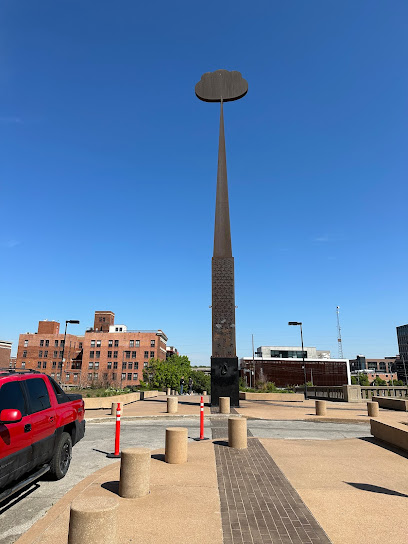
Black Wall Street
Explore Black Wall Street in Tulsa, a historic landmark celebrating African American resilience and a legacy of prosperity in the Greenwood District.
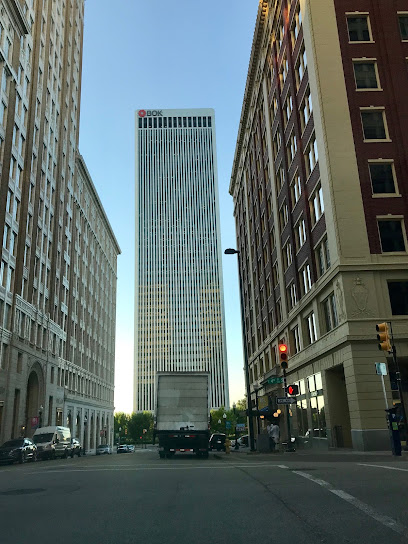
Philtower Building
Explore the Philtower Building, an architectural treasure in Tulsa's Deco District, embodying the city's rich historical tapestry and stunning Art Deco design.
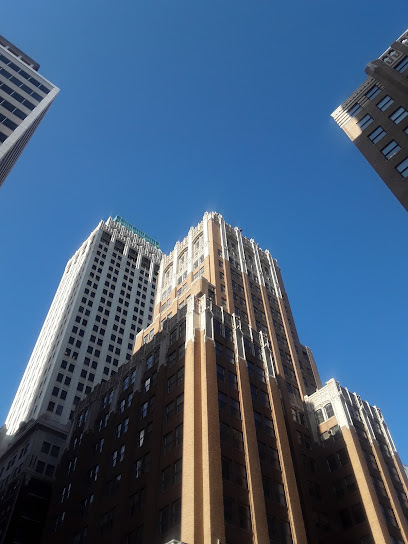
The Blue Dome
Explore the rich history and stunning art deco architecture of The Blue Dome, the iconic landmark in Tulsa's vibrant Blue Dome District.
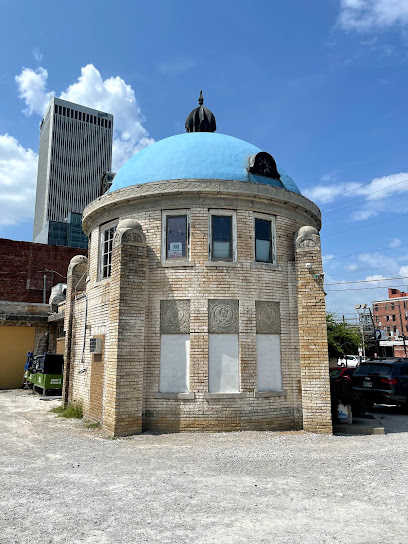
The Tulsa Arts District
Discover the artistic heart of Tulsa at The Tulsa Arts District, where creativity, culture, and cuisine come together in a vibrant urban landscape.
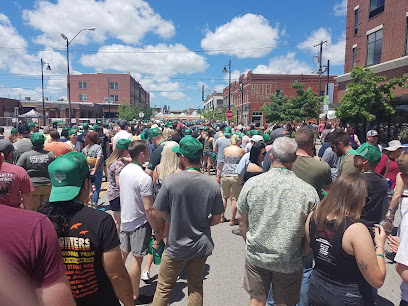
Pedestrian Bridge
Explore Tulsa's rich history and stunning views at the iconic Pedestrian Bridge, a must-see landmark for every traveler.
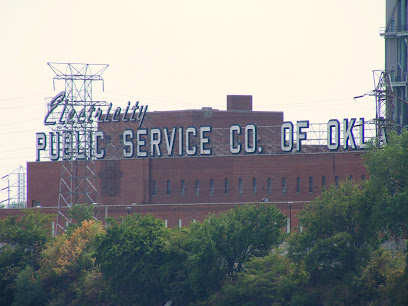
Tulsa’s Oldest House
Explore Tulsa's Oldest House, a historical landmark that showcases the city's rich heritage and architectural beauty, perfect for history enthusiasts.
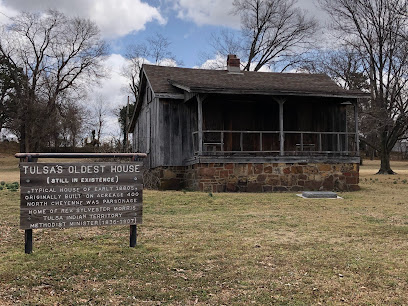
Petroleum Building
Explore the stunning Petroleum Building, a historical landmark in Tulsa's Deco District showcasing the city's rich oil heritage and Art Deco architecture.
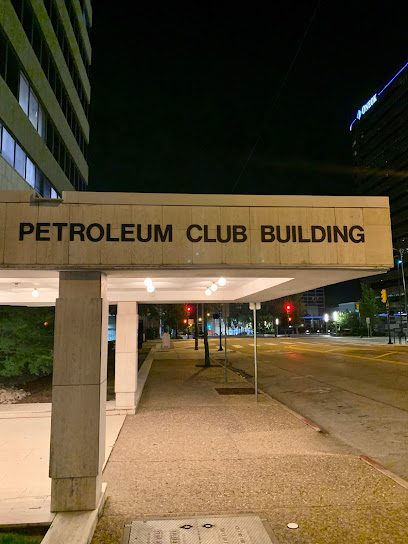
The Majestic
Explore the architectural beauty and historic significance of The Majestic, a premier tourist attraction in Tulsa's Deco District.
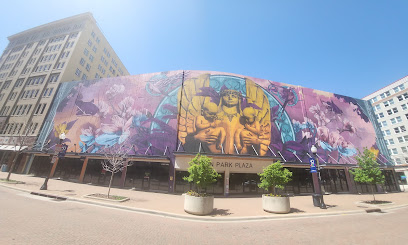
Unmissable attractions to see
The Majestic
Explore The Majestic, an architectural marvel in Tulsa's Deco District, where history, culture, and stunning design converge in a vibrant atmosphere.
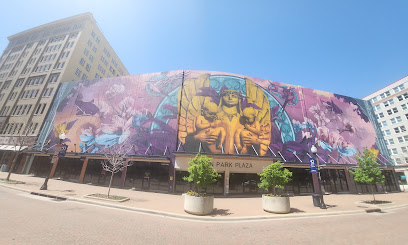
Taste of the Town Tours
Explore Tulsa's rich culinary heritage with Taste of the Town Tours, a unique experience blending delicious food with local history.
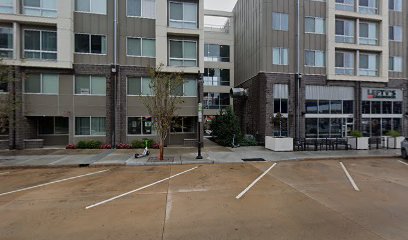
Essential places to dine
JINYA Ramen Bar - Tulsa
Experience authentic Japanese flavors at JINYA Ramen Bar in Tulsa - where every bowl tells a story of culinary craftsmanship.
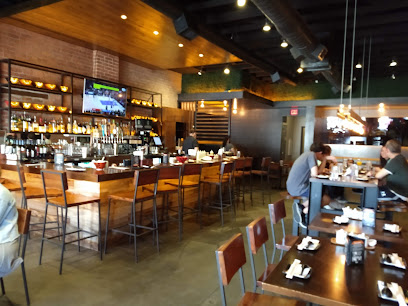
Sisserou's Caribbean Restaurant & Catering
Experience authentic Caribbean flavors at Sisserou's Restaurant in Tulsa's Arts District - where every bite transports you to paradise.
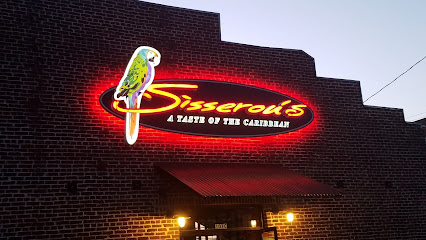
The Vault Restaurant
Discover delectable American cuisine at The Vault Restaurant in Tulsa's Deco District—where flavor meets style.
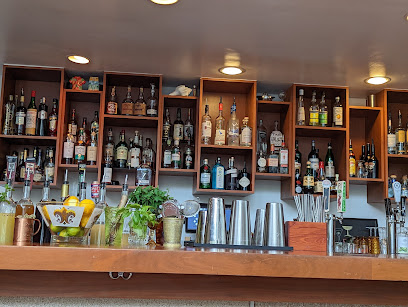
Bull In The Alley
Discover Tulsa's premier dining destination at Bull In The Alley - where exquisite cuisine meets elegant ambiance.
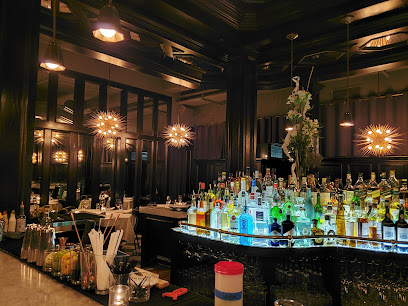
Peacemaker Lobster & Crab Co.
Discover fresh seafood delights at Peacemaker Lobster & Crab Co., where coastal flavors meet vibrant Tulsa dining.
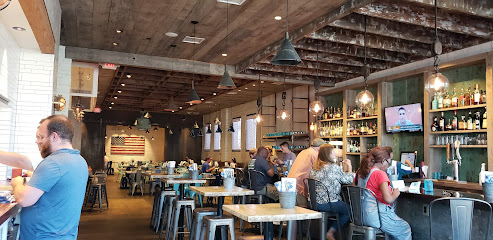
The GOAT Bar & Kitchen
Experience the vibrant flavors of Mediterranean cuisine at The GOAT Bar & Kitchen in Tulsa's East Village District.
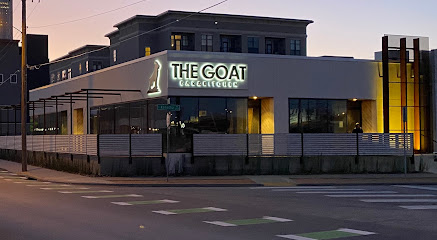
Ti Amo Ristorante Italiano Downtown
Experience the essence of Northern Italy at Ti Amo Ristorante Italiano in downtown Tulsa—where every dish tells a story.
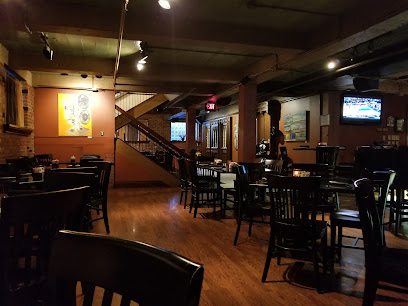
Amelia's Wood Fired Cuisine
Experience the best of American cuisine at Amelia's Wood Fired Cuisine in Tulsa’s vibrant Arts District—where flavor meets innovation.
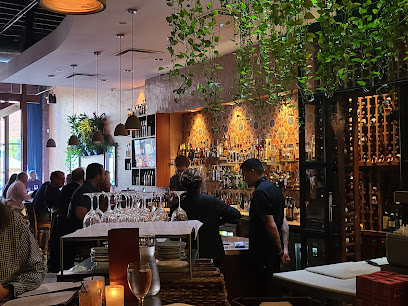
Juniper Restaurant
Experience unparalleled fine dining at Juniper Restaurant in Tulsa's Blue Dome District, where every dish tells a story of flavor and creativity.
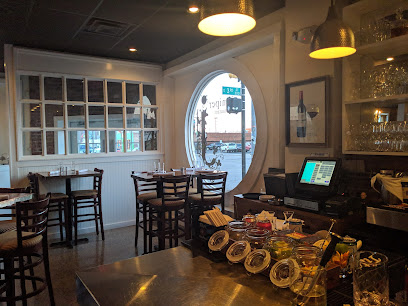
French Hen
Discover authentic French cuisine in Tulsa’s vibrant Greenwood District at the charming French Hen restaurant and wine bar.
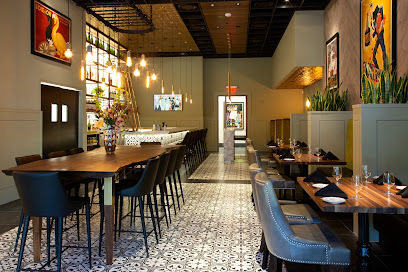
Markets, malls and hidden boutiques
The Boxyard Tulsa
Discover the unique shopping experience at The Boxyard Tulsa, where local artisans and trendy eateries come together in a vibrant urban setting.
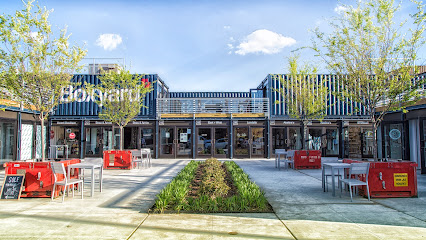
Garden Deva Sculpture Company | Gift Shops Tulsa
Explore creative sculptures and garden art at Garden Deva Sculpture Company, a unique gift shop in Tulsa's Pearl District.
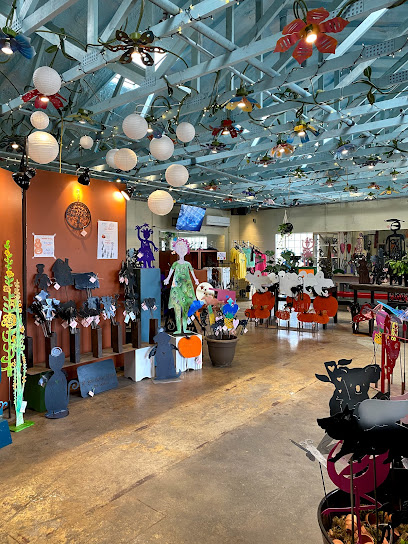
Buck Atom's Cosmic Curios on 66
Explore Buck Atom's Cosmic Curios on 66 in Tulsa, where quirky gifts and Route 66 memorabilia create an unforgettable shopping experience.
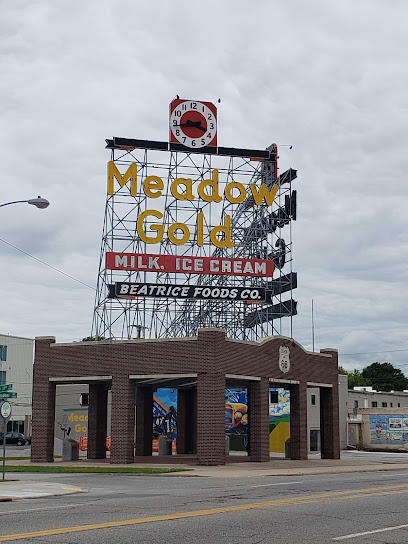
The Racks Tulsa
Explore the unique world of vintage fashion at The Racks Tulsa, where every piece tells a story and sustainability meets style.
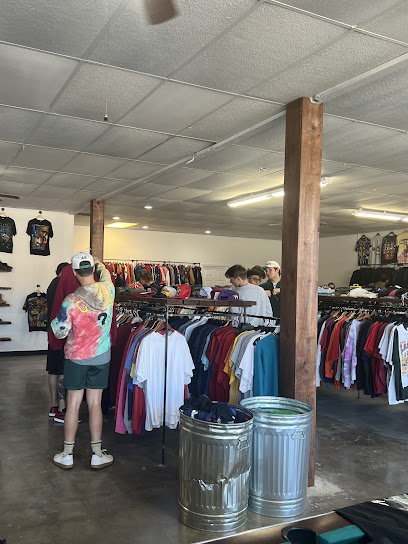
Ida Red
Discover unique gifts and local treasures at Ida Red, Tulsa's beloved gift shop filled with charming souvenirs, fashion accessories, and delightful candies.
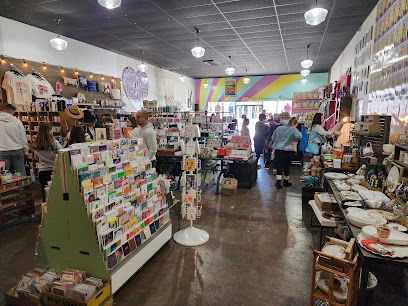
Ida Red General Store
Explore the eclectic charm of Ida Red General Store in Tulsa's Arts District, where unique gifts and local flavors await every visitor.
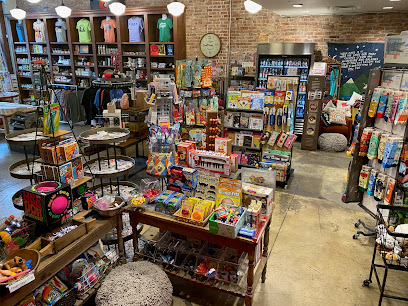
Stash Apparel & Gifts
Explore unique women's clothing and gifts at Stash Apparel & Gifts in Tulsa for a memorable shopping experience.
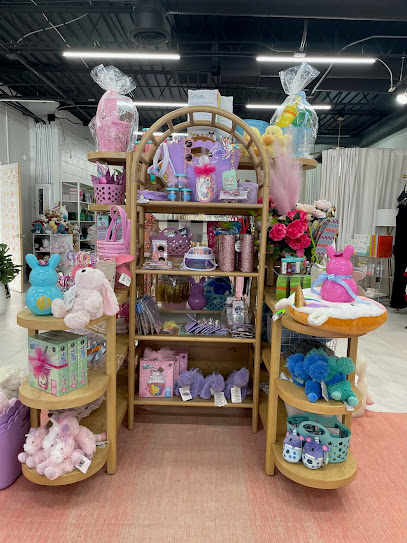
Made
Explore Made in Tulsa's Arts District for unique, handcrafted goods that celebrate local artisans and the spirit of Oklahoma.
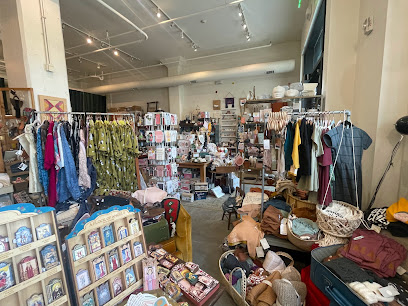
Snow Goose
Explore Snow Goose Gift Shop in Tulsa for unique, handcrafted souvenirs and a taste of local artistry in Oklahoma's charming Utica Square.
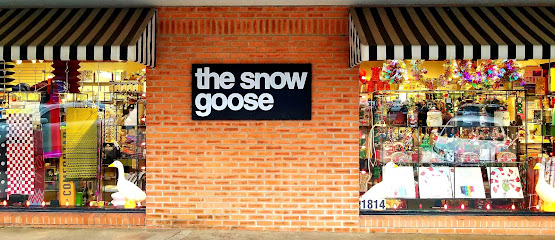
Modern Cottage
Explore the Modern Cottage in Tulsa for unique gifts and handcrafted treasures, capturing the spirit of local artisans in a charming setting.
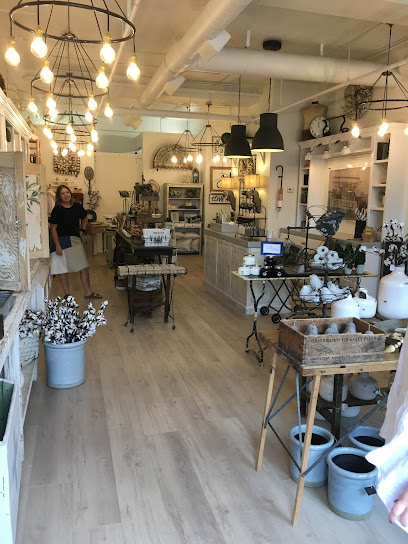
Essential bars & hidden hideouts
Valkyrie
Experience the vibrant nightlife at Valkyrie, Tulsa's premier cocktail bar featuring innovative drinks and a stylish atmosphere.
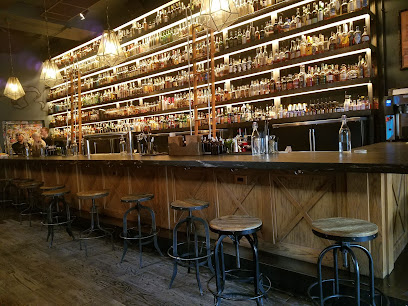
Saturn Room
Discover Saturn Room in Tulsa's Arts District for creative cocktails and stunning skyline views in a vibrant setting.
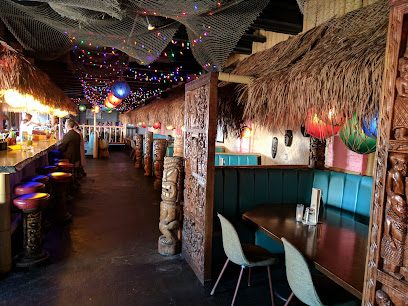
Arnie's Bar
Discover Arnie's Bar in Tulsa's Blue Dome District - a vibrant spot for craft beers, cocktails, and unforgettable nights.
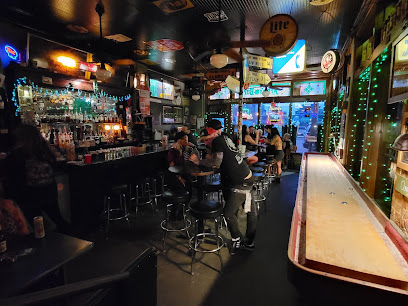
Inner Circle Vodka Bar
Experience the vibrant nightlife at Inner Circle Vodka Bar in Tulsa, known for its unique infused vodkas and creative cocktail menu.
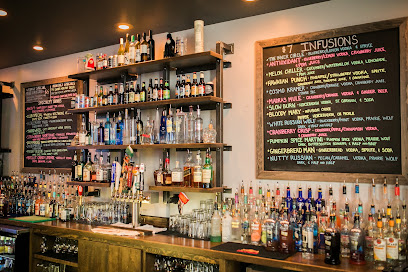
Cellar Dweller
Experience the eclectic atmosphere and creative cocktails at Cellar Dweller, a must-visit bar in Downtown Tulsa.
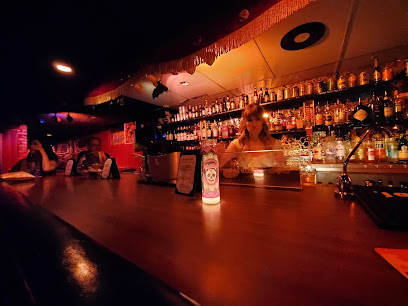
Rabbit Hole Bar and Grill
Experience the vibrant flavors and inviting ambiance of Rabbit Hole Bar and Grill in Tulsa's Blue Dome District, perfect for food lovers and socializers alike.
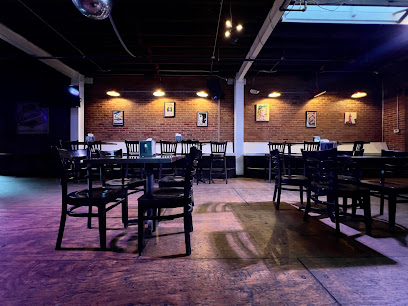
Vintage Wine Bar
Experience the charm of Vintage Wine Bar in Tulsa: where exquisite wines meet delightful culinary creations in a cozy atmosphere.
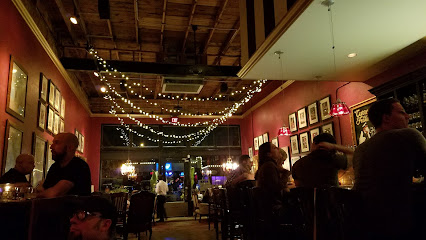
Bar 46
Discover the heart of Tulsa's nightlife at Bar 46, where expertly crafted cocktails meet a vibrant atmosphere in the Arts District.
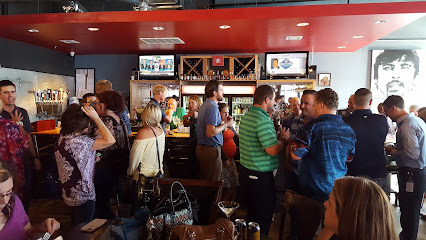
Orpha's Lounge
Discover the lively atmosphere and unique drinks at Orpha's Lounge in Tulsa's Deco District, a must-visit bar for every traveler.
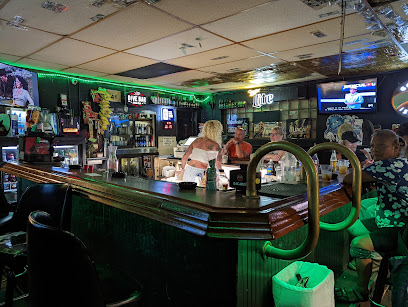
Deco Lounge
Discover Deco Lounge in Tulsa's Deco District for a cozy dining experience featuring delicious grill dishes and exceptional service.
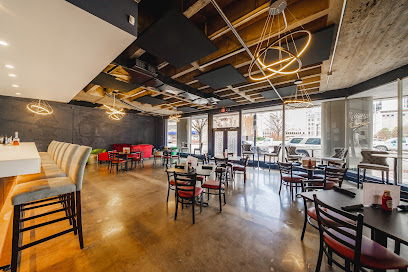
Local Phrases
-
- HelloHowdy
[haw-dee] - GoodbyeSee ya later
[see yuh lay-tur] - YesYep
[yep] - NoNah
[na] - Please/You're welcomePlease/You're welcome
[pleez/yur welcome] - Thank youThanks
[thanks] - Excuse me/SorryPardon me
[par-dun me] - How are you?Howdy
[haw-dee] - Fine. And you?Fine. And you?
[fine. and yuh?] - Do you speak English?Ya speak English?
[ya speak ing-glish?] - I don't understandI ain't catchin' on
[eye-ent catch-in on]
- HelloHowdy
-
- I'd like to see the menu, pleaseCan I take a gander at the menu, please
[kan eye tayk uh gan-der at the menu, pleez] - I don't eat meatI ain't a meat eater
[eye-ent uh meet ee-ter] - Cheers!Cheers!
[cheers!] - I would like to pay, pleaseI reckon I'll settle up, please
[eye ree-kun eye-ul set-ul up, pleez]
- I'd like to see the menu, pleaseCan I take a gander at the menu, please
-
- Help!SOS!
[es-oh-es!] - Go away!Git!
[git!] - Call the Police!Ring up the coppers!
[ring up the cop-pers!] - Call a doctor!Get a healer on the horn!
[get uh hee-ler on the horn!] - I'm lostI'm turned around
[eye-em turnd uh-round] - I'm illI'm feelin' poorly
[eye-em feel-in poor-lee]
- Help!SOS!
-
- I'd like to buy...I'm fixin' to purchase...
[eye-em fix-in to pur-chess...] - I'm just lookingI'm jest browsin'
[eye-em jest brow-sin'] - How much is it?What's the damage?
[whats the dam-ij?] - That's too expensiveThat's a bit steep
[thats uh bit steep] - Can you lower the price?Can ya knock some off?
[kan yuh nok sum off?]
- I'd like to buy...I'm fixin' to purchase...
-
- What time is it?What's the time?
[whats the time?] - It's one o'clockIt's one
[its one] - Half past (10)Ten-thirty
[ten-thur-tee] - MorningMornin'
[morn-in] - AfternoonAfternoon
[after-noon] - EveningEvenin'
[even-in] - YesterdayYest'day
[yes-t-duh] - TodayToday
[tuh-day] - TomorrowTomorrer
[tom-or-er] - 1One
[wun] - 2Two
[too] - 3Three
[three] - 4Four
[fore] - 5Five
[five] - 6Six
[six] - 7Seven
[sev-en] - 8Eight
[ate] - 9Nine
[nine] - 10Ten
[ten]
- What time is it?What's the time?
-
- Where's a/the...?Where's the...
[wheres the] - What's the address?What's the addy?
[whats the add-ee] - Can you show me (on the map)?Can ya point it out (on the map)?
[kan yuh point it out (on the map)?] - When's the next (bus)?When's the next (bus)?
[whens the next (bus)?] - A ticket (to ....)A ticket (to ....)
[uh ticket (to ....)]
- Where's a/the...?Where's the...
History of Downtown Tulsa
-
Downtown Tulsa's history began in the late 19th century with the establishment of the town in 1882. Originally a trading post, it quickly grew as the region became a hub for oil discovery in the 1900s, leading to rapid urbanization and economic prosperity. This foundational period saw the construction of key buildings that would define the skyline of Tulsa.
-
The discovery of oil in the early 1900s transformed Downtown Tulsa into a bustling center of commerce and finance. The neighborhood became known as the 'Oil Capital of the World,' attracting entrepreneurs, investors, and workers. This boom led to the construction of iconic Art Deco buildings, such as the Philtower and the Boston Avenue Methodist Church, which symbolize the wealth generated during this period.
-
One of the most tragic events in American history occurred in 1921 when the Tulsa Race Massacre devastated the Greenwood District, located just north of Downtown. The violence resulted in the destruction of a prosperous African American community and the loss of many lives. The event significantly impacted the social fabric of Tulsa and is an essential aspect of the city's historical narrative.
-
Following World War II, Downtown Tulsa experienced a period of renewal and growth. The construction of new office buildings, shopping centers, and cultural institutions took place during the 1950s and 1960s, reshaping the downtown landscape. This era also saw the establishment of the Tulsa Performing Arts Center, enhancing the cultural offerings of the neighborhood.
-
In the late 20th and early 21st centuries, Downtown Tulsa underwent significant revitalization efforts. Initiatives aimed at restoring historic buildings, creating public spaces, and promoting local businesses have transformed the area into a vibrant urban center. The resurgence of arts and culture, alongside events like the Tulsa Tough and the Blue Dome Arts Festival, have reinvigorated community engagement and tourism.
Downtown Tulsa Essentials
-
Downtown Tulsa is easily accessible from other neighborhoods in the city. If you're coming from the Tulsa International Airport, you can take a taxi, rideshare service, or shuttle, which typically takes about 15-20 minutes. Public transportation options include the Tulsa Transit bus system, which connects various neighborhoods to Downtown Tulsa. If you are driving, major highways such as U.S. Route 169 and I-244 provide convenient access.
-
Downtown Tulsa is pedestrian-friendly, making it easy to explore on foot. The Tulsa Transit bus system operates several routes throughout the area, and the Metro Transit’s electric trolley service is a fun way to navigate key points of interest. Bicycles are also a popular choice, with bike-sharing programs like Tulsa B-Cycle available for convenient rentals. For longer distances, rideshare services are widely available.
-
Downtown Tulsa is generally safe for tourists, but like any urban area, it’s important to stay aware of your surroundings. Areas such as North Tulsa have higher crime rates, so avoid walking alone in poorly lit or unfamiliar parts of the district at night. Stick to well-trafficked areas and keep your belongings secure.
-
In case of an emergency, dial 911 for police, fire, or medical assistance. The local hospitals, such as Saint Francis Hospital and Hillcrest Medical Center, are equipped to handle emergencies. It’s advisable to have travel insurance that covers medical costs, and familiarize yourself with the locations of nearby medical facilities upon arrival.
-
Fashion: Do wear comfortable shoes for walking. While casual attire is acceptable, avoid overly revealing clothing in public areas. Religion: Do respect local customs; while there are no strict dress codes, modesty is appreciated in religious venues. Public Transport: Do offer your seat to elderly passengers. Don't make loud phone calls or eat on buses. Greetings: Do greet locals with a friendly smile or wave. A handshake is appropriate for introductions. Eating & Drinking: Do try local specialties at restaurants. Don't waste food or be overly critical of local cuisines, as it may be seen as disrespectful.
-
To experience Downtown Tulsa like a local, explore the arts district and visit the Philbrook Downtown, which often features local artists. Attend local events, such as First Friday Art Crawl, to engage with the community. Consider dining at one of the many food trucks or local eateries to enjoy authentic Tulsa flavors. Additionally, check out the Tulsa Farmers' Market for fresh produce and local goods.
Nearby Cities to Downtown Tulsa
-
Things To Do in Broken Arrow
-
Things To Do in Bartlesville
-
Things To Do in Stillwater
-
Things To Do in Edmond
-
Things To Do in Oklahoma City
-
Things To Do in Bentonville
-
Things To Do in Moore
-
Things To Do in Fort Smith
-
Things To Do in Norman
-
Things To Do in Joplin
-
Things To Do in Rogers
-
Things To Do in Enid
-
Things To Do in Eureka Springs
-
Things To Do in Wichita
-
Things To Do in Emporia













